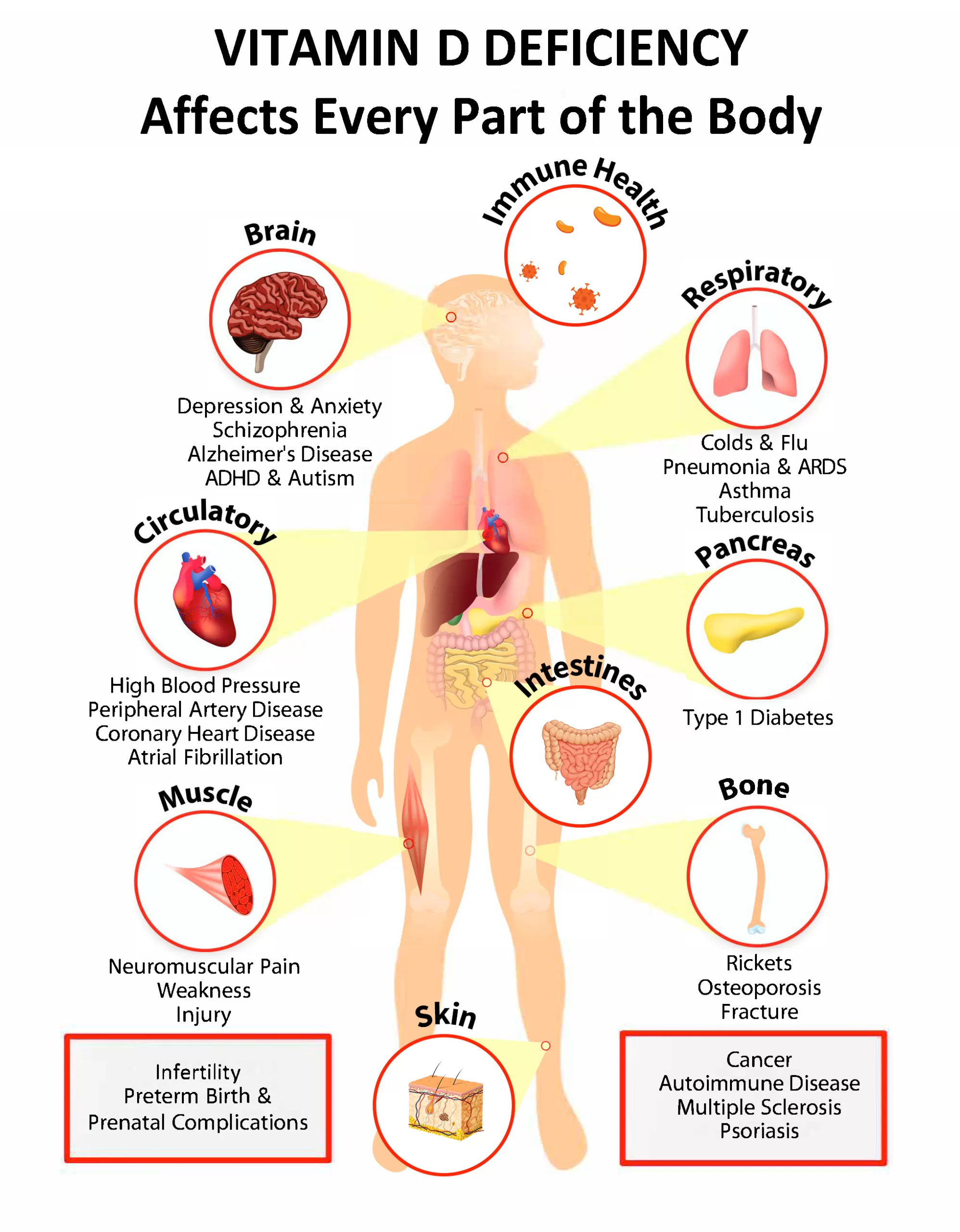The interconnectedness of sunlight exposure and the synthesis of vitamin D plays a crucial role in shaping our overall health. From strengthening bones to boosting immune defences, regulating mood, and supporting cardiovascular health, sunlight and its resulting production of vitamin D impact every aspect of our biological existence.
1. Sunlight and Vitamin D: Supporting Bone Health
The National Institute of Health elucidates the pivotal role of sunlight exposure in synthesizing vitamin D, which facilitates the absorption of calcium and phosphorus, crucial for maintaining bone integrity and strength.
Research shows that inadequate levels of vitamin D are strongly correlated with conditions such as rickets in children and osteomalacia in adults, leading to compromised bone health and an elevated risk of fractures.

2. Vitamin D and Immune System Enhancement
According to Healthline, sufficient vitamin D levels modulate the immune system. Research indicates that vitamin D enhances innate and adaptive immune responses, potentially reducing the risk of infections and autoimmune diseases. Additionally, studies have found an association between adequate vitamin D status and a decreased incidence and severity of respiratory infections, including the common cold and influenza.

3. Sunlight Exposure and Mood Regulation: Insights from Research
Scientific investigations have elucidated the relationship between sunlight exposure and mood regulation. Sunlight stimulates the production of serotonin, a neurotransmitter involved in mood regulation, sleep, and appetite. Clinical studies have demonstrated that exposure to natural sunlight can alleviate symptoms of depression and anxiety, as well as mitigate the effects of seasonal affective disorder (SAD), providing empirical support for sunlight’s role in mental well-being.
4. Impact of Sunlight on Skin Health: Evidence-Based Perspectives
While excessive sun exposure is associated with skin damage and an increased risk of skin cancer, moderate sunlight exposure benefits skin health. Research indicates that sunlight can improve various skin conditions, including psoriasis, eczema, and acne, owing to its anti-inflammatory properties and ability to stimulate skin cell turnover and repair mechanisms.
5. Sunlight and Circadian Rhythm Regulation: Scientific Validation
Studies have consistently demonstrated the influence of sunlight exposure on the body’s internal clock, or circadian rhythm. Sunlight exposure helps regulate sleep-wake cycles and overall energy levels by synchronizing circadian rhythms. This evidence underscores the importance of sunlight exposure in maintaining optimal physiological functioning.
6. Vitamin D and Cardiovascular Health: Insights from Epidemiological Studies
Epidemiological studies have established a link between vitamin D deficiency and an increased risk of cardiovascular diseases, including hypertension, coronary artery disease, and heart failure. Research suggests that vitamin D contributes to cardiovascular health by regulating blood pressure, reducing inflammation, and improving endothelial function, highlighting its cardioprotective effects.

Summarizing supports the multifaceted roles of sunlight exposure and vitamin D in promoting human health. While precautions should be taken to mitigate the risks of excessive sun exposure, ensuring adequate vitamin D levels through safe sun exposure, dietary sources, or supplementation is essential for overall well-being based on empirical research findings.
